 Isolating the situation of Puerto Rico is one of the mechanisms used to seek acceptance of the austerity policies that are now being imposed on the Island.(1) If the crisis is seen as the result of actions by Puerto Ricans or their government — if the responsibility lies, exclusively or fundamentally, in Puerto Rico — then it is logical that it bears the consequences of its own deeds or misdeeds, painful as they may be.
Isolating the situation of Puerto Rico is one of the mechanisms used to seek acceptance of the austerity policies that are now being imposed on the Island.(1) If the crisis is seen as the result of actions by Puerto Ricans or their government — if the responsibility lies, exclusively or fundamentally, in Puerto Rico — then it is logical that it bears the consequences of its own deeds or misdeeds, painful as they may be.
Punitive Neoliberalism in Puerto Rico
Is Socialist Revolution Possible – Or Even Necessary?

Bennett Muraskin:
I look at the world for many decades now and do not see evidence that the class struggle is alive and well, except to the extent that workers are on the losing end. But even more than that, it does not appear that the class struggle is playing a key role anywhere in the world. All of the major conflicts are being fought on national, ethnic and/or religious grounds. In these conflicts, whether they are in Syria, Afghanistan, Yemen, Niger or even Catalonia, workers line up with their tribe.
The State of the Left in Latin America: Ecuador and Bolivia After the Pink Tide
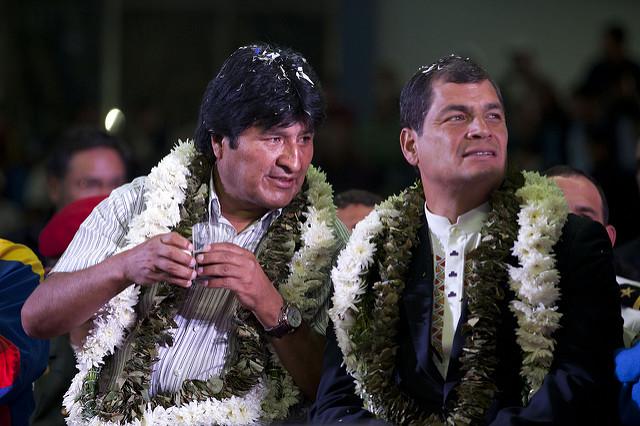
As rightwing governments take power in Argentina, Brazil, and elsewhere across the region, Ecuador’s leftwing Alianza País (Country Alliance, AP) and Bolivia’s Movimiento al Socialismo (Movement Towards Socialism, MAS) and Bolivia have managed to hold onto power.
The Left, the Right, and Globalization

Don’t be tricked into thinking that what is going on is a debate about “free trade”—the unhindered exchange of goods—because it is not.
U.S. Workers in the Late Neoliberal Era
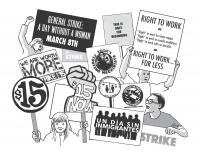
Capitalism in the United States and across the world has gone through a series of mind-bending crises, spatial “fixes,” and continuous restructurings that have disoriented organized labor in most of the developed economies since the beginning of the neoliberal era in the late 1970s and early 1980s.
Puerto Rico and PROMESA: Reaffirming Colonialism
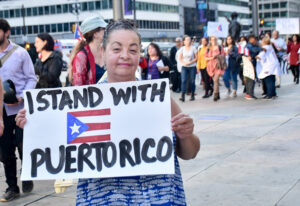
With this dramatic announcement, Governor Alejandro García Padilla transformed the island nation’s long-simmering debt overhang problem into an international spectacle. A financial mess that seemingly concerned only institutional investors, municipal bondholders, and some hedge fund managers exploded into a full-blown debt crisis with disquieting parallels to the situation in Greece.
Agrarian Reform and the Radicalization of Food Politics

If you’ve seen any of the documentaries that are critical of U.S. agriculture, then you’re most likely aware of the increase in some innovative and somewhat unconventional experiments in growing food—bee hives and gardens on hospital roof tops, abandoned warehouses turned into greenhouses, farms that double as a local community’s source of fresh produce and the pizzeria.
Socialism from Below? Bolivia in an Age of Extractivism

Bolivia received global attention for its anti-imperialist and anti-capitalist social movements in the twenty-first century. Best known perhaps were the Water Wars, against water privatization, in 2000 and the Gas Wars, demanding nationalization of the gas industry, in 2003. These rebellions entailed a radical rethinking of natural resource use and distribution.
Building the Infrastructure for a Strong Left

Alex Kolokotronis is a 1st year PhD student in Political Science at Yale. He self-identifies as a libertarian socialist and is interested in studying anarchist movements, post-state forms of governance and public power, and associationist self-managed socialism. He is the co-founder of Student Organization for Democratic Alternatives (SODA), a group dedicated to implementing participatory budgeting and participatory democracy at the university level. Participatory budgeting is a directly democratic process by which ordinary people get to deliberate and decide how to allocate a designated budget. He previously worked in Worker Cooperative Development with Make the Road New York and the New York City Network of Worker Cooperatives.
Learning From the Great Depression

Recently, the economics editor of the Guardian newspaper in the UK, Larry Elliott, presented us with a comparison of the Great Depression of the 1930s and now. In effect, Elliott argued that the world economy was now in a similar depression as then. The 1930s depression started with a stock market crash in 1929, followed by a global banking crash and then a huge slump in output, employment and investment. In that order. The number of bank failures rose from an annual average of about 600 during the 1920s, to 1,350 in 1930 and then peaked in 1933 when 4,000 banks were suspended. Over the entire period 1930-33, one-third of all US banks failed. But it was the stock market crash that was first.
Reflections on Opportunity Lost
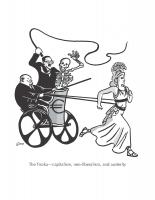
In very different ways, Helena Sheehan’s The Syriza Wave: Surging and Crashing with the Greek Left and Looting Greece: A New Financial Imperialism Emerges by Jack Rasmus look back over the period of the Greek debt crisis, and the parallel rise and fall of Syriza, and try to take stock.
The Capitalistic Mentality and the Politics of Radical Reform

Periodization of the various versions of capitalism is tough academic work, and what follows is not meant to diminish the importance of those kinds of projects.
Our Postwork Future: A Prospect to Win or to Lose?
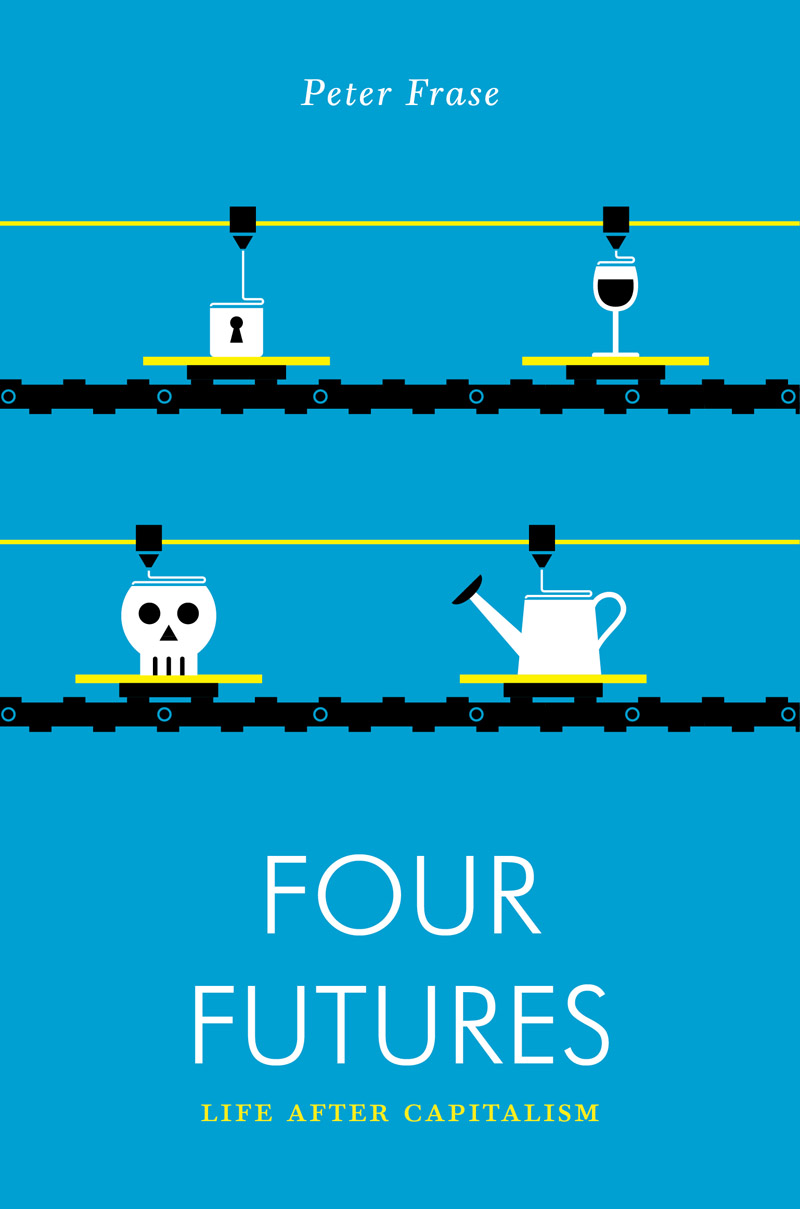 Peter Frase. Four Futures: Life After Capitalism. New York: Verso, 2016. 160pp.
Peter Frase. Four Futures: Life After Capitalism. New York: Verso, 2016. 160pp.
It borders on a disservice to characterize Four Futures: Life After Capitalism as a primer on contemporary political philosophy, since Peter Frase, the author, explodes any expectation of pedantry in his prose, or more importantly, in his approach to political theory, which he calls “social science fiction.”
The End of an Era: From Dependence to Self-Propelled Development
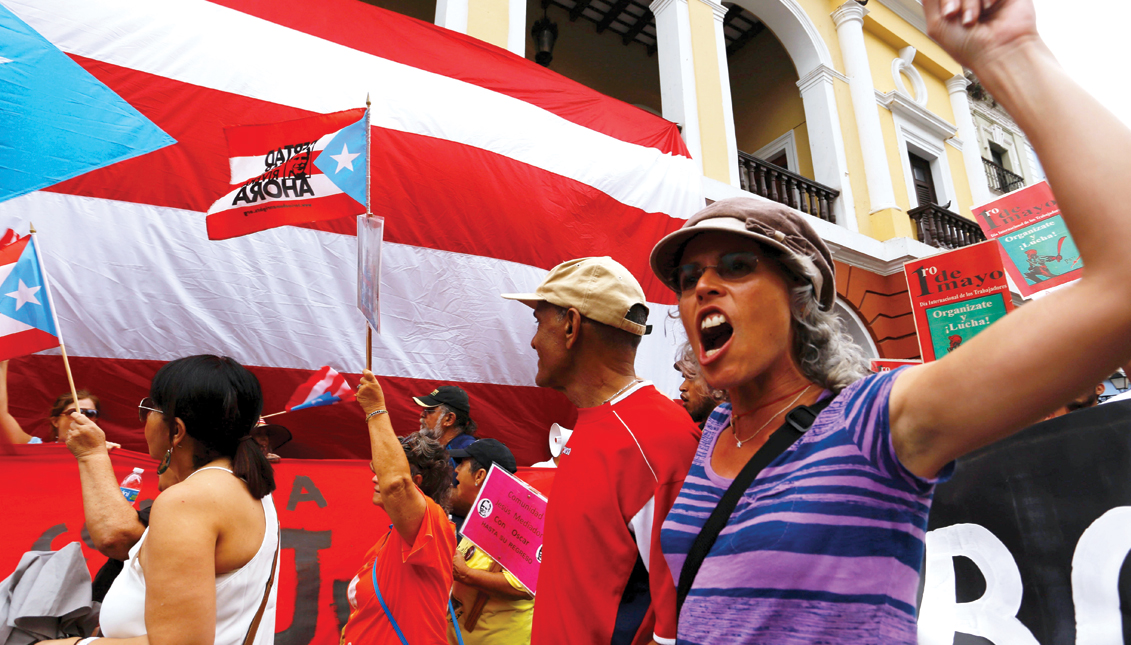
In 2006, the University of North Carolina Press published Puerto Rico in the American Century, a history of Puerto Rico since 1898, written by César J. Ayala and I.
NOBEL PRIZE IN ECONOMICS AWARDED TO KARL MARX; ACADEMIC ECONOMISTS SHOCKED, ‘DISMAYED.’
.jpg)
[Stockholm – August 21] The Nobel Prize in economics has been awarded posthumously to Karl Marx (1818-1883) for his book Das Kapital, a decision that has shocked and “dismayed” the economic establishment.
Lars Enquist, spokesperson for the committee, said that awarding Marx represented “an attempt to rectify shameful past errors on the part of the bank’s award committee.” He then read a remarkable statement to the media and the public explaining this year’s award:
Homage to E.P. Thompson
 E.P. Thompson (1924–1993) wore several hats during his life. His magnum opus as a historian was The Making of the English Working Class, one of the greatest history books written in the twentieth century in any language. He fought tirelessly for nuclear disarmament in the 1980s, which almost surely took years off his life.
E.P. Thompson (1924–1993) wore several hats during his life. His magnum opus as a historian was The Making of the English Working Class, one of the greatest history books written in the twentieth century in any language. He fought tirelessly for nuclear disarmament in the 1980s, which almost surely took years off his life.
Food Justice + Food Sovereignty
In the United States today, there is a fresh opening for progressive alliances. The various movements—Black Lives Matter, the Fight for $15, climate change, immigrant rights, LGBT rights, Bernie—have different roots, structures, and foci, but they share a recognition that we are being crushed by the newest form of capitalism—as they call it in Latin America, “capitalismo salvaje”1 (savage capitalism)—and that we must stand up to it with all our might, with all our people.
The Struggle Against Syriza’s Austerity Program
 The month of May witnessed the second round of massive general strikes to hit Greece in 2016. Mobilizations on May Day were followed by four days of strikes in the lead-up to the Syriza government passing its austerity pension bill.
The month of May witnessed the second round of massive general strikes to hit Greece in 2016. Mobilizations on May Day were followed by four days of strikes in the lead-up to the Syriza government passing its austerity pension bill.
The Neo-colonization of Central America
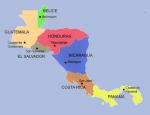
The colonization of Latin America never ended, it merely changed forms. Today this conquest continues, with transnational companies driving neo-colonization grounded in the continued exploitation of natural resources. This is nowhere more true than in Central America. The force of neo-colonization is strengthened by free-trade agreements and development plans that guarantee a company’s right to investment above the rights of the citizenry. Meanwhile, the indigenous populations face renewed dispossession and eviction to make way for global capital’s conquest.
 The editors of these volumes have provided an invaluable service, bringing renewed attention to the highly original and enduringly contentious critique of Capital that arose from one of the most universally revered figures of the revolutionary movement.
The editors of these volumes have provided an invaluable service, bringing renewed attention to the highly original and enduringly contentious critique of Capital that arose from one of the most universally revered figures of the revolutionary movement.